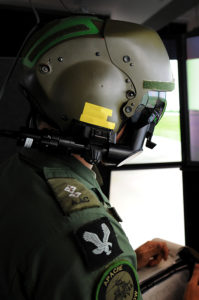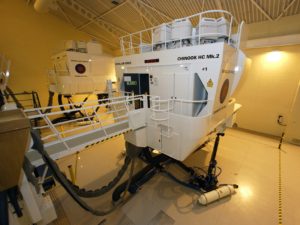
The world faces an increasingly complex range of natural and man-made threats. Social media and the internet have provided the means by which criminality, corruption and terrorism can evolve, often out of sight, until ready to strike. In this feature, John Baker, Head of Global Operations for the National Security and Resilience Consortium, examines the evolution of agile training solutions and their part in the delivery of resilient approaches towards dealing with current threat scenarios.
The globalised nature of threat, whether it concerns airport or aviation-related security, the protection of energy supplies and infrastructure, or our banking and commerce systems, has significantly increased the need for easily deployable and relatively inexpensive yet effective personal training systems.
Recent events across Europe have highlighted the value of and need for collective training modelling or simulation exercises which support and assess the ability of first responders to deal with larger, more sophisticated or more complex situations, such as multiple and simultaneous terrorist attacks on infrastructure, shopping centres, sports arenas, theatres or holiday locations.

The Report of the Official Account of the Bombings in London on 7th July 2005 (HC 1087), published in 2006, followed by the experience gained at the subsequent London 2012 Olympic Games, facilitated the development of a sophisticated information exchange model for stakeholders, in readiness for any incident and for dealing with the potential aftermath.
The London Olympics were acknowledged internationally as a highly successful event, and placed the United Kingdom at the forefront of counter-terrorism and security training.
For NATO, UN aid agencies, governments or national armed forces, modelling and simulation allow extreme scenarios to be played out with the ability to assess varying responses in a secure, relatively inexpensive and safe environment.
Whether for the most basic e-learning solution or for the most sophisticated and complex modelling scenario, the computer and the internet have become an invaluable tool. However, at the heart of the above lies the basic requirement for brilliant and incisive leadership, and the human ability to design, plan, strategise and deliver training solutions.
E-learning opens up a multitude of possibilities across the national security, resilience and defence space. Typically, ‘electronic learning’ means using a computer to deliver part or all of a course whether in a school, as part of mandatory business training, or as part of full distance learning anywhere in the world.
In the early days e-learning received a bad press as many thought that bringing computers into the training would remove the human element which some learners require. However, as time has passed so the technology has developed, and we now embrace smartphones and tablets as part of our daily lives, as well as using a wealth of interactive designs that make e-learning not only engaging for users, but valuable as a lesson-delivery medium.
Doug Cooke MBE CSyP FSyl of the International Secure Minds Training Academy (iSMTA) and member of the National Security and Resilience Consortium (NS&RC) has identified six key values of e-learning in the defence sector:
- Flexibility – the student can conduct their learning at any time of the day or night, any day of the week and any month of the year, anywhere. This is ideal for the busy employee who may have to juggle work and domestic schedules and where time is at a premium. Not having to conform to fixed start and end times can mean less stress for students.
- Consistency – the course content is presented in a standardised manner. Precisely the same content will be available for regular review.
- Ubiquity – a business or organisation can be sure of the content presented to the student wherever they are located, eg all managers within a company across the world can be guaranteed access to the same high standards of learning.
- Measurability – the training provider can monitor and measure the progress of students online and offer further assistance when needed.
- Sustainability – the use of IT devices reduces the need for paper-based learning, travel to classrooms and time away from work.
- Discretion – offers individuals the opportunity to confidentially obtain an awareness of an area of knowledge or gain a nationally accredited qualification.

All this helps to keep the cost of e-learning to an affordable level for both the business and the individual student.
Supporting this e-learning is the development and adoption of simulation training. Simulation training reflects a development in theories of learning from more individually oriented activities to those that view learning as a social performance. It has become increasingly commonplace in high-risk environments such as the nuclear industry, the emergency services, the military and the medical profession as well as pandemic first responders.
As simulation becomes an accepted part of everyday education and training, attention is being paid to how it can best be used to develop technical and non-technical skills. Simulation appears to work most effectively when it is designed to meet curricular outcomes, includes realistic and relevant content and interesting and engaging learning methods, and prepares learners for working in the relevant context in terms of activities, skills and competencies.
With the increasing relevance of simulation and modelling, collaboration and speedy access to world-leading expertise and guidance is crucial.
Graham McIntyre, Chairman of the European Training and Simulation Association (ETSA), said:
The ETSA represents the community and provides an environment for users and suppliers to exchange opportunities, ideas, information and strategies on training and simulation technology and methodology.
“ In so doing we bring together all those who have a professional interest in improving the effectiveness of training and training-related interoperability, standards and codes of practice. It represents to governments and other users of training and simulation the non-partisan business interests of the industry.”
If you would like to join our community and read more articles like this then please click here
e-learning ETSA European Training and Simulation Association Homeland London 2012 security simulation social media terrorist Training UK








